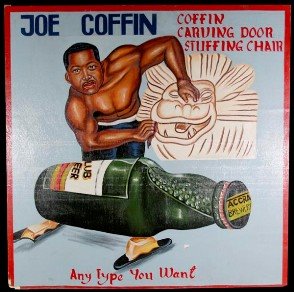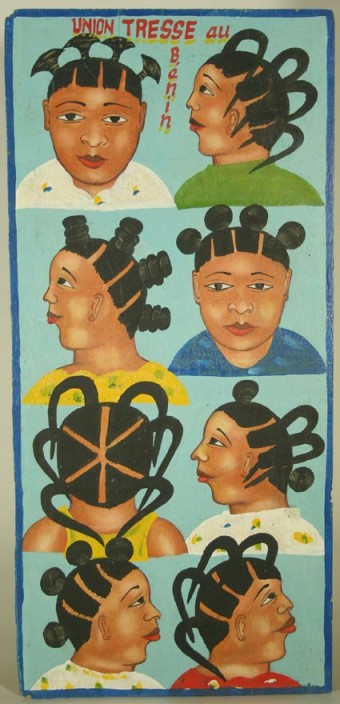
For weeks my inbox has been bombarded with event invites, information, flyers and promotional blurbs about an upcoming Street Art festival in Accra. In
Jamestown, the poorest, most densely populated ghetto in Accra. Not only was it strange to be getting email correspondence about a festival in Jamestown, but foreign embassies were involved and were even asking for volunteers for the day.
One of the
website blurbs states:
The festival is free and open to the public with more than 2,000 patrons expected to attend. CHALE WOTE Street Art Festival is a collaborative effort produced with the help of the Ga Mashie Development Agency, the Foundation for Contemporary Artists, JustGhana, Attukwei Art Foundation, Pidgin Music, DUST Magazine, ACT for Change, The WEB, and Ehalakasa Poetry Slum.My carefully constructed cynicism told me that the event was a disaster in the making or at best, a non-starter, but I agreed to ‘check it out’ with T, for old times’ sake – to celebrate the curiousity that has helped us to know Ghana so well through the years.
This Saturday was the big day. T and I piled into a rickety taxi, left the relative serenity of Osu, and asked to go to the prison (the main Jamestown fort being both the ‘hub’ of the daily activities, AND the oldest prison in Ghana). He obliged. As he honked and dodged along the bumpy roads, we sat, bright and scrubbed and carefully devoid of jewellery or purses, looking out at the increasing squalor, the tightly choked lanes, the throngs of passers-by, jostling between taxis, tro tros, head loads and knee high festering piles of rubbish. We were in the heart of Jamestown.
He dropped us at a random corner, which seemed just as good as any, and we nodded at the cluster of old men gathered on makeshift benches on the other side of the green swamp gutter. We entered a dirt square, bordered by concrete walls, that housed an unorganised mess of people under canopies, selling fufu and a sad array of ‘local crafts’, along with a brass band in matching yellow t-shirts. There were easily 200 children below the age of 10, stomping around the band, in a rainbow of school uniform colours, following the pied piper of Jamestown, a lanky guy, with red rimmed hipster glasses, a hand painted t-shirt and a wacky expression.
Then the pied piper saw us, motioned to his crew and within seconds they attacked. Hundreds of knee high sets of brown hands and faces, all over our arms and legs, shouting, chanting, laughing, pushing. “Obruni!!!!!!!”
“Oh no!” This was NOT on my agenda. I have no clue why he sent them to us, but just as fast as they’d arrived, he motioned for their retreat and they were off, marching in another direction, leaving us self conscious and confused; the imprint of tiny bare toes on our ankles and feet; in a thick cloud of dust.
We tried to find something interesting to keep us there, but alas, after T taught the seller of the ‘ancient African beads’, that most were in fact, less than 6 months old and from China and India, we wandered out of the square.
We stood forlorn on the street corner, a spectacle of white curiousity, while T consulted her list of activities, printed off from the numerous flyers. There were hopeful events listed there, such as spoken word readings, experimental theater, fashion circus, Brazilian fight dancing, bike and rollerskate stunting party, live music etc. Looking around at the complete lack of signs, vibe and such, and instead at the din of a usual Saturday afternoon in Jamestown, kids bathing naked at the roadside, mothers sweating, pouring the dirty water from the buckets of their lives into the open fetid gutters… I remained skeptical.
Just then, T spotted the sign for a project that the North American Women’s group has been donating funds. It was painted roughly by hand, “Jaynii Streetwise” at the edge of the lighthouse (a colonial legacy at the coast and edge of Jamestown’s grasp). We stood for a minute at the top of the huge stone steps that led downward and out of view. Before us was the beach, a sand the colour of toast, and beyond that the vast ocean, whose waves sounded so peaceful and so at odds with the mayhem of the neighborhood behind us. To our right, knotted masses of fishermen’s nets hung on the broken and decaying walls of what was once a colonial building. Now, the half enclosed crumbled walls were occupied by family upon family. The children ducked and dived between their mothers as the women bent over the weekend laundry buckets. We were essentially within a few feet of the private lives of others, as if looking into an ant colony in primary school science class. No one noticed us though, and we descended the stairs.
We were on the beach. A few concrete rooms at various stages of completion were dotted along to the left. Some were painted, most half built. Nothing at all was happening here. One got the impression that the idea of anything one day occurring here had been abandoned. (I had read online that there was a bar here with the same name two years ago, complete with thatched umbrella shaded tables, but nothing of this is left today).
As we rounded the front of the first building we saw some movement. The door opened and a beautiful woman in a white sleeping dress emerged - turns out she is Jay of Jaynii. Behind her, the dark room produced small faces, one by one peering out at the visitors. I noticed a colouring book and fresh bright crayons on the floor by the door and knew the donations had definitely reached here.
Jay seemed not the least bit surprised by our impromptu visit, and while she explained to T what was ‘going on’ with the project, I peered in further. There were new looking caramel coloured leather sofas, two of them, piled with bags and boxes and ladies and children. They just seemed so odd. So out of place in this little salty, stuffy room at the edge of Jamestown, on the beach.
Jay introduced us to her new baby, sleeping peacefully in a small bassinet. Then she took us on a tour. But there was nothing much to see.
“Here is the hostel for the street children” she explained. It was a shell of a building. Nothing in it. No windows. It will be completed by next week. Hmmmmm.
“50 children will stay here. We need to get them out of what they are living in – urgently.” I wondered what she meant by this. Up above us on the the main street, the children lived in small rooms with no windows. They scrambled for food, they barely made it from day to day. What would be different here in this ghostly set of rooms?
“Here are the washrooms and toilets, donated by NAWA. But we haven’t yet finished the toilets.”
“Where is the library?” T asked.
“It is there.” We did not see it.
“Are there books for the library?”
“Yes there are some books.”
We didn’t see those either.
Jay invited us to her upcoming wedding celebrations as well - and though we were flattered, I had to wonder - weddings in Ghana, as elsewhere are expensive affairs. Jay lived in this one tiny room with at least 12 other people - how would she afford such an event. I hoped she was marrying rich...
Back at the top of the steep steps we bumped into an American couple, kitted out with money belts, sunglasses, festival programs in hand. They looked about as silly as us, and they hadn’t found anything more going on than we had.
Eventually we came across a couple more ‘events’ on random side streets – which consisted of western highschool students (who had obviously volunteered), looking flustered and harassed, policing groups of wild local kids, in painting dead car tires, t-shirts and walls. It was chaotic and not very entertaining, but at least the kids seemed to be having fun or some semblance of it.
We found another group of kids and a few artists in a decaying courtyard as well. Some were painting the walls, and three young Jamestown boys with roller skates on were jumping rows of their brave friends on the floor. A smattering of expats wandered between them all, trying to find enough to stick around for. We couldn’t find enough and ended up at Osekan, a beach front bar just out of Jamestown’s reach.
With our feet up, we sipped cokes. I wondered where the French Ambassador was. Did the funders visit their event? Did the do-gooders hope and expect to create a fully organised festival in the midst of a slum where food and water are luxuries?
What is art when you are hungry? What place do we have in pushing concepts onto people. What if they would have appreciated a bag of rice instead of paint on the streets? Tomorrow’s bath water, tipped into the road, will wash it away, and nothing will be left but a sour memory of another failed project in Ghana.
>>>>>>>>>>>>>>>>>>>
I have removed all photos that I had added to this post, which were not taken at the event, nor did they accurately represent the event. Instead, I tried to borrow some great photos from Ghana blogger
Nana Kofi Acquah - who managed to get some great shots. Unfortunately Blogger will not let me upload photos as there seems to be a bug of some sort with this over the past two weeks :( I strongly recommend visiting Nana's site.

































